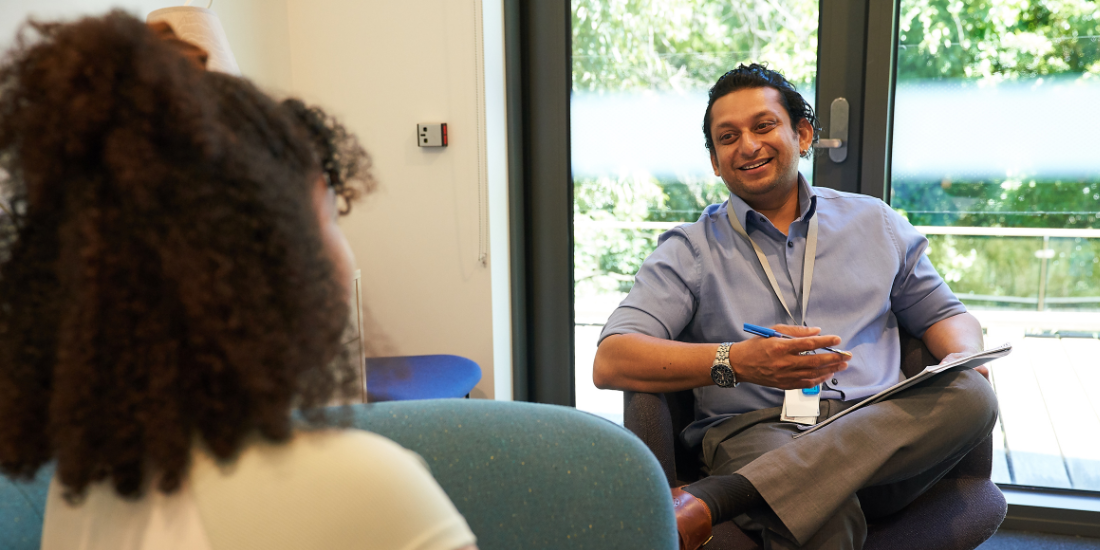Cognitive Analytic Therapy

What is cognitive analytic therapy?
Cognitive Analytic Therapy (CAT) is an integrative, time-limited model, that is collaborative and flexible and has a strong and central focus on the relational nature of human development and psychopathology.
CAT has a transdiagnostic approach, so it can be used to treat a wide range of difficulties, including:
In individual therapy, CAT allows the therapist and client to work together to make sense of the patterns of thinking, feeling, behaving and relating to facilitate change.
The CAT model can be used as a relational framework as well as an individual therapy. Relational formulation is a useful relational reflective practice model for teams to use even in settings where CAT is not offered as an individual therapy. A relational framework can assist clinicians and teams to work together collaboratively. It helps them to understand the origins of the client’s problems and promotes more helpful system and clinician responses that do not collude with maladaptive relational patterns.
Orygen's CAT practitioner course
Orygen’s two-year CAT practitioner training course is designed for mental health clinicians working across a range of public and private mental health settings.
The course is accredited by the Australian and New Zealand Association of Cognitive Analytic Therapy (ANZACAT) and based on standards set by the International Cognitive Analytic Therapy Association (ICATA) for the training of CAT practitioners.
The aim of the course is for trainees to develop the competencies required to be accredited as a CAT practitioner by ANZACAT. The training is delivered by staff with experience in our Helping Young People Early (HYPE) clinical care program. The HYPE program has been using CAT in early intervention for young people with personality disorder since 1999.
Please email [email protected] for further information.
Workshops and training
presenters
Dr Louise McCutcheon
Course Director

Dr Louise McCutcheon is a clinical psychologist and an accredited Cognitive Analytic Therapy (CAT) practitioner, supervisor and trainer. She is an Honorary Clinical Associate Professor at the Orygen Centre for Youth Mental Health, The University of Melbourne. She coordinates the Helping Young People Early (HYPE) Service Development team, and is the Principal Psychology Educator.
Louise jointly founded the award-winning HYPE program in 1999, an early intervention program for borderline personality disorder in young people at the Parkville Youth Mental Health and Wellbeing Service (PYMHWS, formerly Orygen Specialist Program). She has extensive clinical experience working with young people with complex and severe mental health difficulties and their families. In 2003, she established the HYPE service development and training program, which works with mental health services both nationally and internationally to implement early intervention for personality disorder initiatives. Within this program, she developed the first CAT training program in Australia.
Louise was the founding chair of ANZACAT in 2010 and is the current chair of the clinical standards and training committee of ANZACAT as well as a member of the executive committee. Louise has served on the executive committee of ICATA in various roles since 2009 and is currently vice-chair.
JENNIFER O’BRIEN
COURSE COORDINATOR

Jennifer O’Brien is an Occupational Therapist, educator, and accredited Cognitive Analytic Therapy (CAT) supervisor and trainer. With over 20 years of experience across public and private mental health sectors, Jennifer brings a rich blend of clinical expertise, leadership, and a deep commitment to youth mental health and wellbeing. Along with CAT Jennifer has training in Creative and Experiential Art therapy and is a trauma-informed yoga teacher. Her therapeutic work draws from this training, where she uses a relational approach to support young people with complex mental health needs.
Jennifer holds an academic and teaching position at Australian Catholic University, where she is actively involved in research and education focused on improving outcomes for First Nations Peoples and individuals experiencing eating disorders. Her work is grounded in principles of inclusion, social justice, and co-design, aiming to create meaningful and equitable change through collaborative and culturally responsive research practices.
Jennifer coordinates the two-year CAT practitioner training program and provides training and consultation on relational approaches to mental health clinicians and teams working with young people with complex needs. Jennifer also serves on the ANZACAT website and training committee and has held roles in the ANZACAT executive committee.